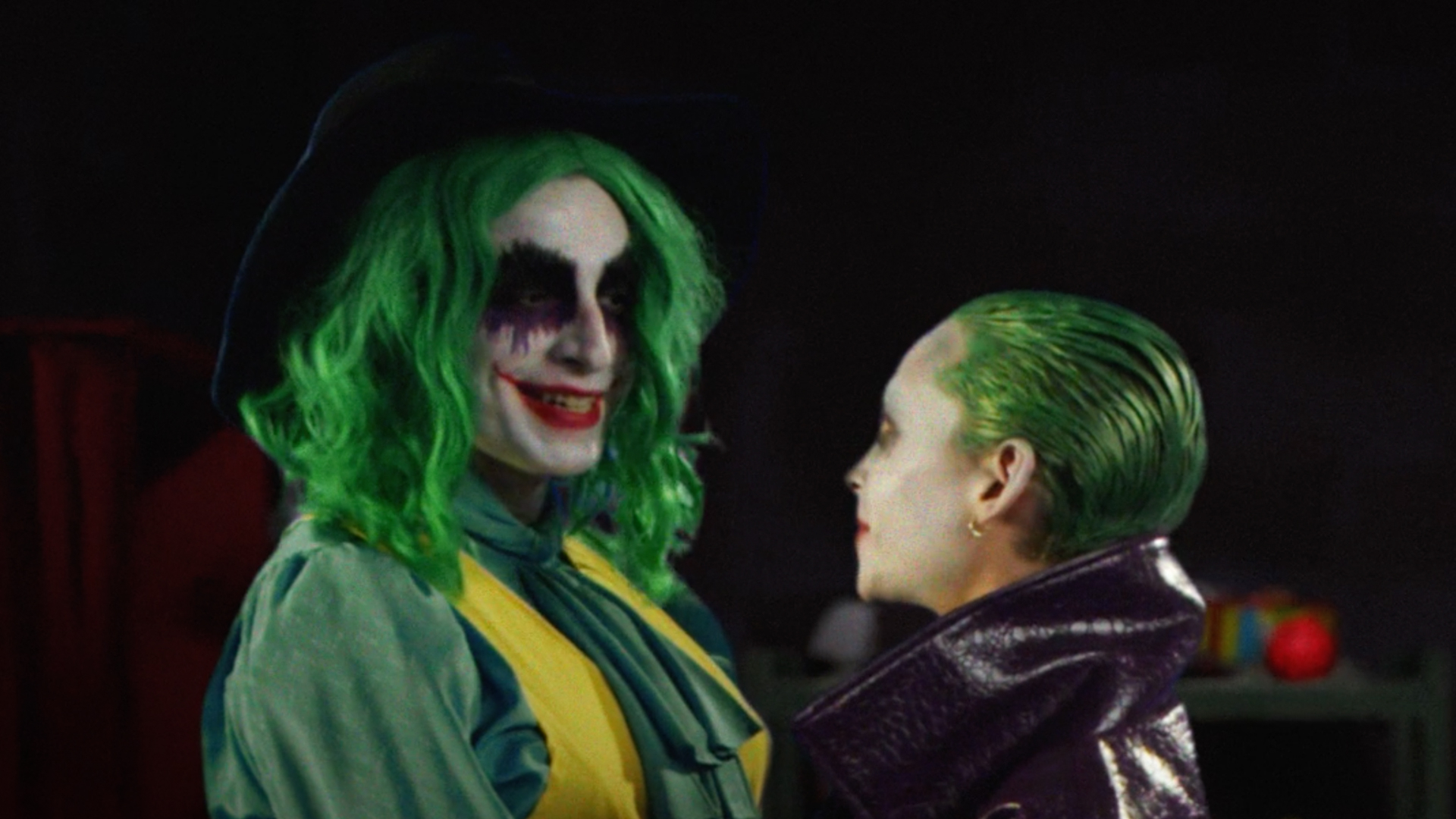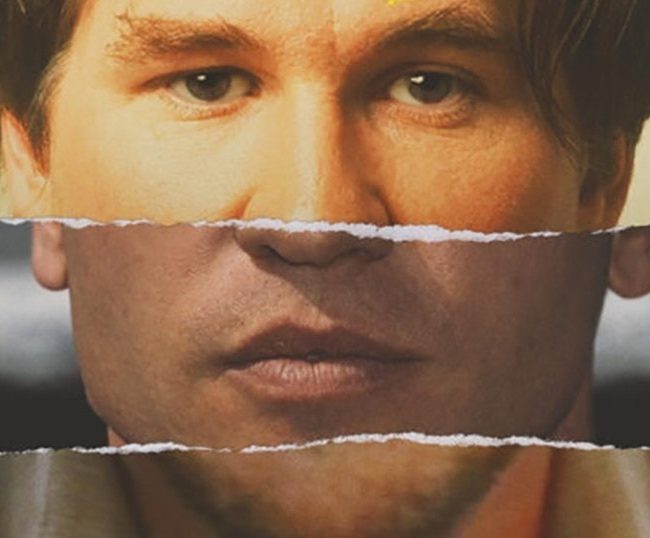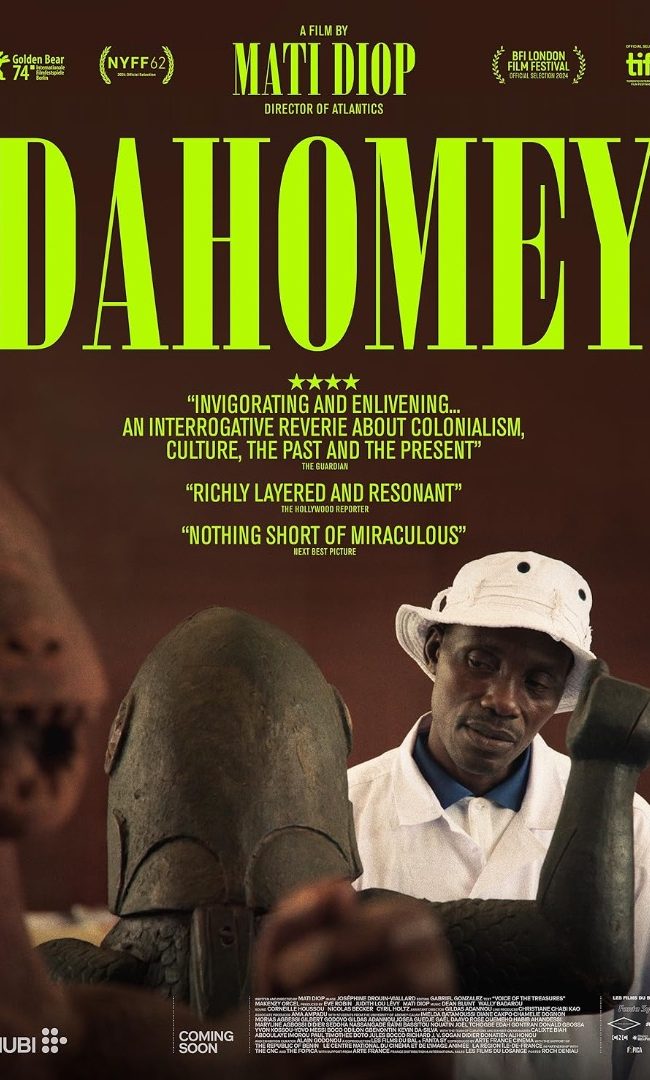THE PEOPLE’S JOKER

(Check out Bears Rebecca Fonté’s The People’s Joker movie review. The film had a fantastic festival run with a torrent of success and is in theaters now. Seen it? Join the conversation with HtN on our Letterboxd Page.)
For hundreds of years, society’s best actors were tested on the role of Hamlet. This open-ended role fraught with conflict and indecision became the empty canvas on which every skilled star wanted to lay their own brush strokes. I wonder if 100 years from now someone will be saying the same about the Joker. Cesar Romero, Jack Nicholson, Mark Hammill Heath Ledger, Jared Leto, Joaquin Phoenix, Brent Spiner and Alan Tudyk have all had memorable turns as the DC antihero. The character is consistently listed as one of the best comic book characters and is often the only villain to consistently appear alongside names like Spiderman, Superman, and Batman. His popularity may have a lot to do with his not having any particular powers or abilities but rather relying on his wits and his will for chaos.
As our nation has slipped further and further into what looks like our own self-induced chaos, the Joker has seemed particularly relevant. Phoenix’s portrayal, directed by Todd Phillips, proved popular with online incel culture, led to concerns from the United states army that it would cause violence in movie theaters, and was criticized by Vanity Fair as too sympathetic towards “white men who commit heinous crimes.” However, outsiders can come from both sides of the ideological spectrum and nobody’s being more villainized today than members of the trans community.
Enter Vera Drew’s genre-defying breakout feature debut The People’s Joker, a retelling of the Joker story in a post-apocalyptic Gotham where the writer/director stars as a desperately unfunny comedian propelling toward stardom. Unfortunately, humor has been all but outlawed and the only approved comedy troupe is run by a poorly CGI’ed version of Lorne Michaels. Here, men are jokers and women are Harlequins, leaving our hero, struggling with her gender identity, to forge her own path as “Joker the Harlequin.”
Shot entirely on green screen, the work of over 200 mostly queer creators — artists, musicians, and animators — the inventive coming of age story elevates the arguably hap-hazard, low budget mixed-media visuals (2D, 3D, stop-motion, live action) beyond genre pastiche into something heartfelt and personal. With Marvel still steering clear of overt LGBTQ characters in the Feigeverse and DC relegating its best representation to The CW network, Vera Drew has delivered a subversive superhero pic, one which gives voice to the way so many people see superhero pics.
In her origin story, Joker the Harlequin (JtH?) refers to a particularl moment in childhood watching Nicole Kidman seduce Val Kilmer’s version of Batman and wanting to be Catwoman herself. For people who have struggled to see themselves in the genre, Joker the Harlequin is both the stand-in and the answer. Drew also gives her Joker the character’s most telling origin story. As a psychiatrist prescribes medication to make the young trans girl ‘smile,’ the future JtH promises her mother “I’ll never even tell you if I’m sad.” The maniacal laughter of the villain is an obvious artifact of pretending to be happy – just like so many trans kids have had to [surprise, like JtH, it often drives us mad and fills us with rage too]. Moving away from her small town to find herself, she gathers around her a chosen family that includes Poison Ivy, the Riddler, the Penguin, and a fellow Joker who adopts the name ‘Mr. J,’ the term of endearment Harlequin uses for her love in the comics.
When her special brand of anti-comedy gets her noticed, the SNL-ish show that Joker the Harlequin couldn’t even get past training program day one invites her to host. However, there’s just a few notes from the studio, including the audience needing to ease into her presentation. Like the director herself, Joker the Harlequin is never going to get permission to tell her story. She must carve out her own space and then force everyone to see her. The Joker doesn’t start out as the villain of this story but like many queer people, a culture of fear and oppression forces us into acting outside the rules. If you want to make us the villain, we’re happy to fill that role as long as we can do it our way.
The strength of The People’s Joker is that it exists at all. After a single screening at TIFF in 2022, Warner Brothers flipped out and the film disappeared for months, most likely arming up with lawyers and the identity of parody. Oh no, were the queers invading their little superhero sandbox? Throughout the film, a conservative newscast keeps interrupting the narrative with its own transphobic hatred speech. It’s as if the metaphor wasn’t coming through strong enough and Drew needed us to hear the unfiltered disgust directly. But even that doesn’t play as harmful as the mother’s denial of Joker the Harlequin’s identity, her refusal to call her by her chosen name, and her demand to be acknowledged for putting in the minimum amount of effort.
As DC is weeks away from putting out another of its own Joker films, Vera Drew’s The People’s Joker proves there is room in this mythology for many versions of this anti-hero. By making the version so personal to her own journey, she has given the character back to everyone, to the people.
The People’s Joker is in theaters now and expanding into more markets.
– Bears Rebecca Fonté (@BearsFonte)
The People’s Joker; Vera Drew











